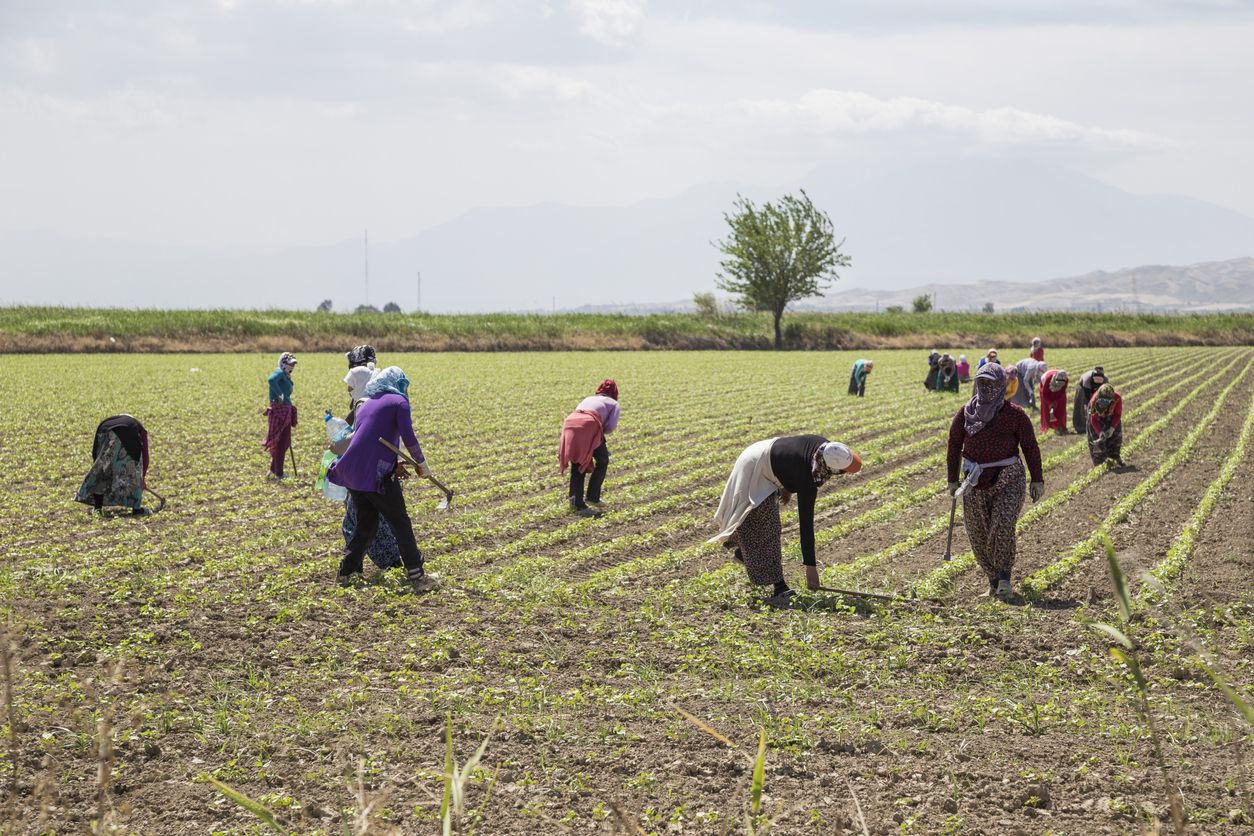Farming is a cyclical activity. Crops are planted, grown, and eventually harvested. In the interim, a farmer will typically only see money leave his farm as he waits for a hopeful windfall of cash after harvest. Some farmers even have to wait several weeks after harvest to get paid. Managing that cashflow must be stressful but can also be damaging to the business if you cannot purchase the products you need — think fertilizers and pesticides, but also increasingly tech tools and so — to manage the growing season.
The industry’s cyclicality means that farmers, more often than not, use some sort of financing or debt to tide them over those cash-barren months. While some markets have more developed agricultural finance options than others, most commentators would agree that more sophisticated systems are needed, and entrepreneurs are slowly but surely turning up to create them.
Agri-fintech options for European farmers
In Southern and Eastern Europe, two agri-fintech startups Tarfin and Agro.Club, have been expanding their respective footprints to offer their financing solutions to new farmers across the region. Agro.Club is eyeing up expansion even further afield in Brazil too.
These regions have large populations of small to medium-sized farmers who are underserved and are generally forced to turn to their ag input suppliers for finance at exorbitant rates. “Vendor financing” as it’s known is rampant in both fragmented and consolidated agricultural markets with large distribution chains and commercial farms, according to Mehmet Memecan, founder and CEO of Turkey-founded fintech startup Tarfin.
“Agri-dealers step in to provide financing along with agriculture inputs. Providing vendor financing puts a strain on dealers’ cash flows and is an expensive financing solution for farmers. As most agri-dealers are forced to sell with vendor financing, they run out of cash to invest in their businesses,” he tells AFN.
Tarfin is an alternative to vendor financing, providing agro-dealers and small to mid-sized farmers with a quick and convenient tool to finance the sale of agriculture inputs. The Istanbul-based startup uses machine learning-based agricultural risk scoring models that rely on farm data and credit history. This allows Tarfin’s partner retailers, who provide inputs such as seeds and fertilizers, to assess the credit-worthiness of the farmers and offer them inputs with fairer credit terms and the chance to pay at harvest. Tarfins’s underwriting is automated and the company can revert with an approval instantly, thereby seamlessly integrating the financing solution with the sale of the ag-inputs. Farmers are also informed upfront of the payment amount due at harvest, with no origination fees, service charges, or deferred payment fees charged.
With increasingly available data about agriculture and farms to determine risk and train its algorithms, Tarfin has been able to expand. It also did so with the help of $14 million in fresh funding from Syngenta Group, Yara Growth Ventures, and Elevator Ventures, the corporate venture capital entity of Raiffeisen Bank International. It had raised $5 million in a Series A round prior to that.
Since 2017, the agri-fintech startup has financed over 42,000 farmers and has extended over $100 million of financing for agricultural inputs sales.
A Spanish partnership
Agro.Club is another agri-fintech startup that provides embedded financial solutions for players in the agri value chain in Europe. The US-based platform is a digital sales enablement platform that helps retailers, grain companies, input manufacturers and farmers manage their commercial processes efficiently.
In other markets, Agro.Club provides financing via a full-stack B2B grain marketplace. Its algorithms not only help farmers and grain companies find the best match of supply and demand, but also do quality control of the grain, know-your-customer documentation, logistics, and financing of the transactions.
More recently, Agro.Club partnered with Spanish bank Crealsa to offer innovative financing solutions for Spain’s farmers. These include supply chain financing, transactional services, and a ‘Buy Now, Pay Later’ option.
The agri-fintech startup is also expanding to Brazil, which lies within its target expansion region by virtue of agricultural productivity; it is targeting North America, South America, and Europe broadly.
“We are big believers in the potential and need for innovative financial solutions in agriculture, as very little progress has been made over the last 30 years,” Egor Kirin, founder and CEO of Agro.Club tells AFN.
It has so far facilitated transactions worth over $200 million and has served more than 25,000 farmers across the globe.
Regulation and licensing
Government policies can be one of the main barriers to entry for companies looking to expand to other markets. Having the local bank Crealsa as a partner helped Agro.Club with regulatory support, compliance and operational efficiency and risk management.
“We try to leverage strong existing players in every market who have already proven success so we can also be efficient, provide the latest and best financial solutions and also just be fast with moving into the market versus having to do everything ourselves. We really like the partnership model in general,” says Kirin.
Memecan also admits that obtaining licenses in a new market is an extensive process. He notes however that regulatory approvals can be obtained within reasonable times and are not a dealbreaker when venturing into new markets.
“Since the beginning, we built these tech assets with a modular technology that has already proven to be easily adaptable to different local market needs,” he adds.





